Publications
Search publications
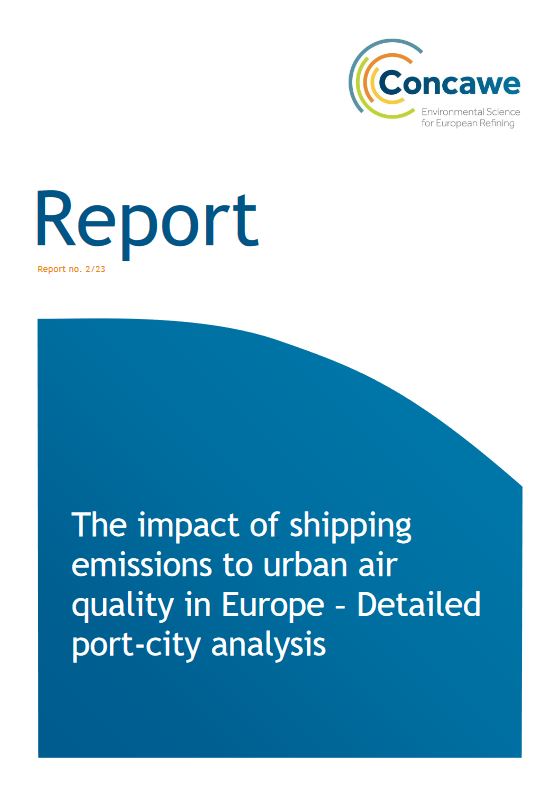
March 30, 2023
The impact of shipping emissions to urban air quality in Europe – Detailed port-city analysis
Report no. 2/23: The report presents the results from a recent project Concawe conducted with TNO that used modelling to assess the influence of shipping emissions on the air quality in 19 selected Eu...
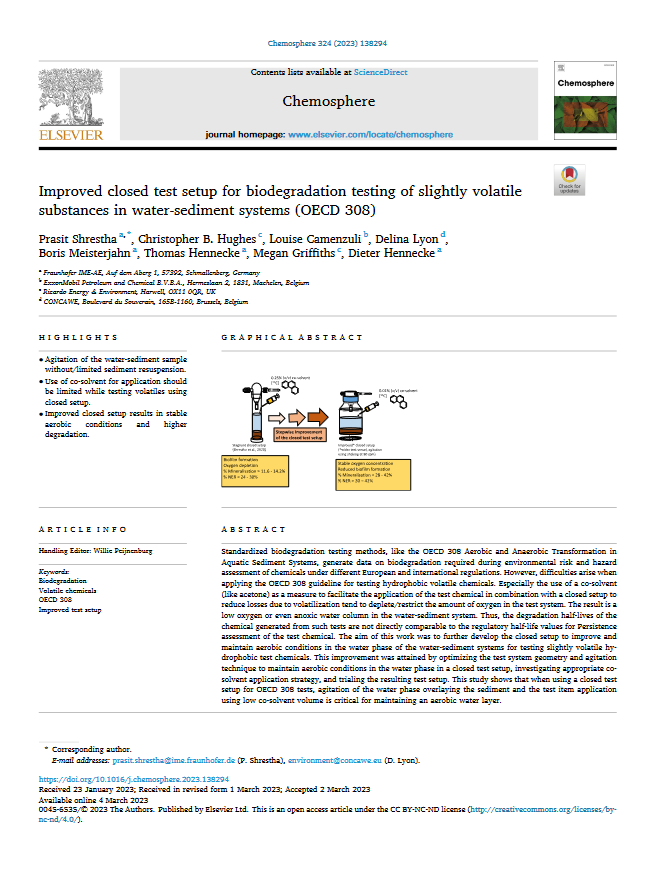
March 4, 2023
Improved closed test setup for biodegradation testing of slightly volatile substances in water-sediment systems (OECD 308)
Standardized biodegradation testing methods, like the OECD 308 Aerobic and Anaerobic Transformation in Aquatic Sediment Systems, generate data on biodegradation required during environmental risk an...
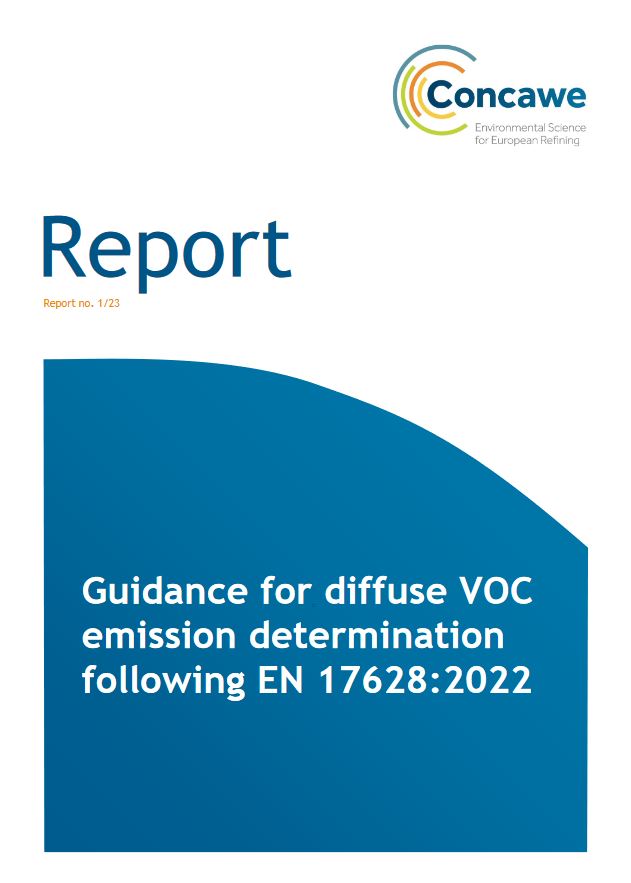
February 16, 2023
Guidance for diffuse VOC emission determination following EN 17628:2022
Report no. 1/23: This document addresses the periodic determination of diffuse emissions of non-methane volatile hydrocarbon compounds from refineries by means of remote sensing. A recent European sta...
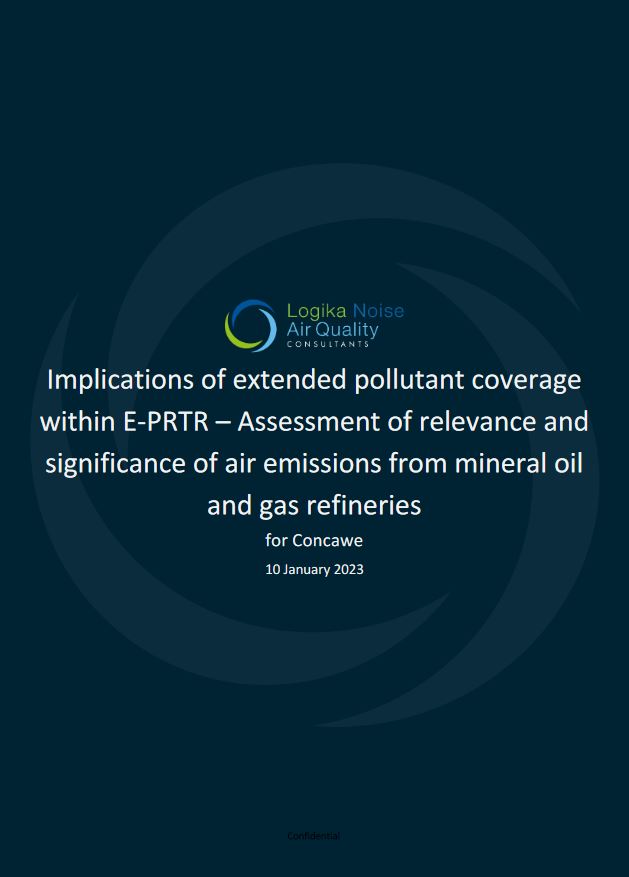
January 10, 2023
Implications of extended pollutant coverage within E-PRTR – Assessment of relevance and significance of air emissions from mineral oil and gas refineries
A 2020 ICF review of the completeness of the European Pollutant Release and Transfer Register (E-PRTR) activities, pollutants and thresholds identified 38 new air and water pollutants for potentia...
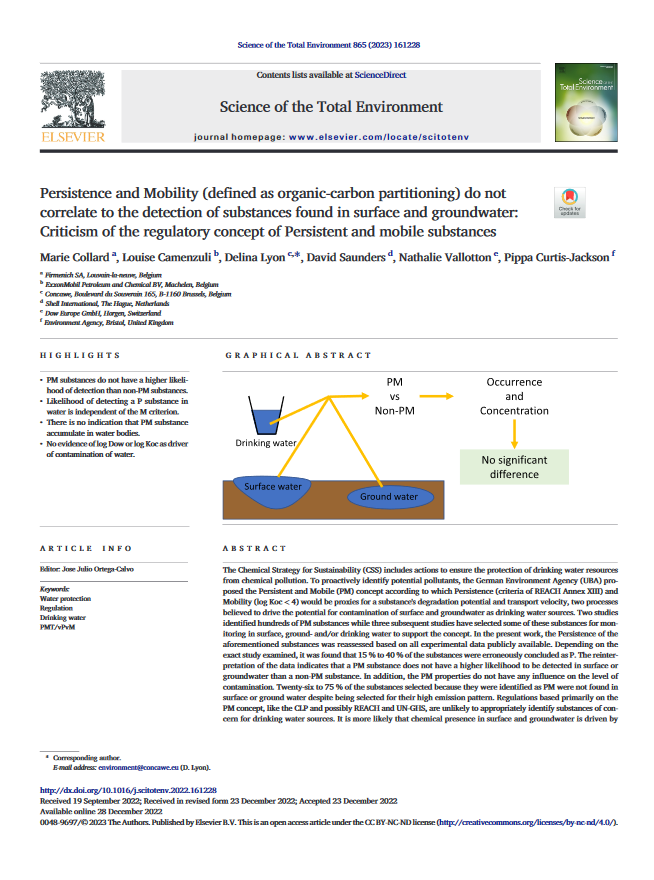
December 28, 2022
Persistence and mobility (defined as organic‑carbon partitioning) do not correlate to the detection of substances found in surface and groundwater: Criticism of the regulatory concept of persistent and mobile substances
The Chemical Strategy for Sustainability (CSS) includes actions to ensure the protection of drinking water resources from chemical pollution. To proactively identify potential pollutants, the German...
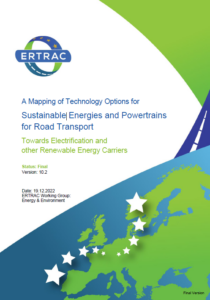
December 21, 2022
A Mapping of Technology Options for Sustainable Energies and Powertrains for Road Transport
In December 2022, the European Road Transport Research Advisory Council (ERTRAC) adopted during its plenary meeting a new document entitled “A Mapping of Technology Options for Sustainable Energies...
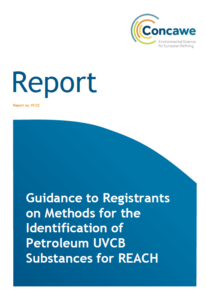
December 12, 2022
Guidance to Registrants on Methods for the Identification of Petroleum UVCB Substances for REACH
Report no. 19/22: Following recent revisions to Annex VI of EU REACH Regulation No. 1907/2006, this report describes the information which registrants should now provide in Sections 1.2 and 1.4 of the...
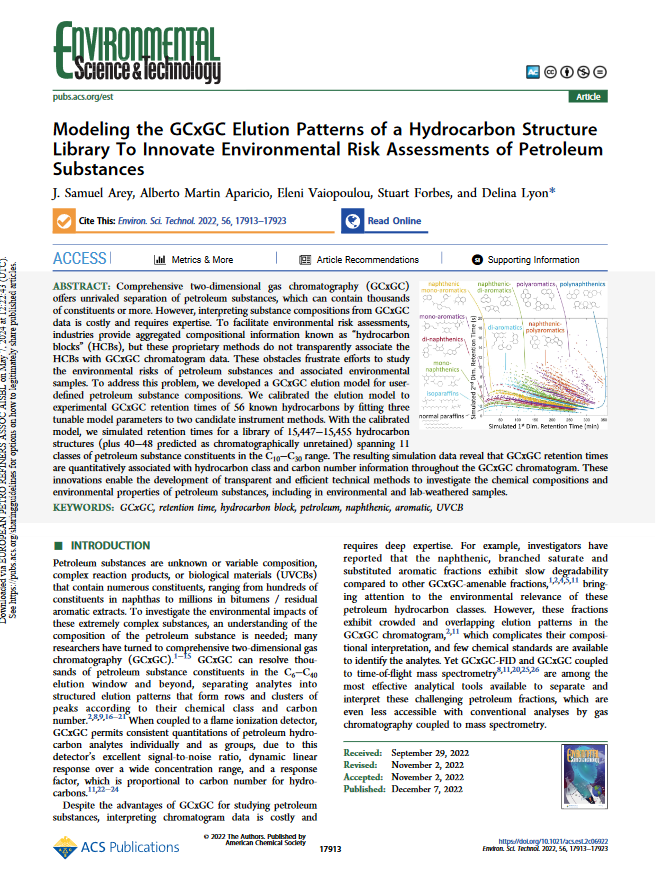
December 7, 2022
Modeling the GCxGC elution patterns of a hydrocarbon structure library to innovate environmental risk assessments of petroleum substances
Comprehensive two-dimensional gas chromatography (GCxGC) offers unrivaled separation of petroleum substances, which can contain thousands of constituents or more. However, interpreting substance compo...
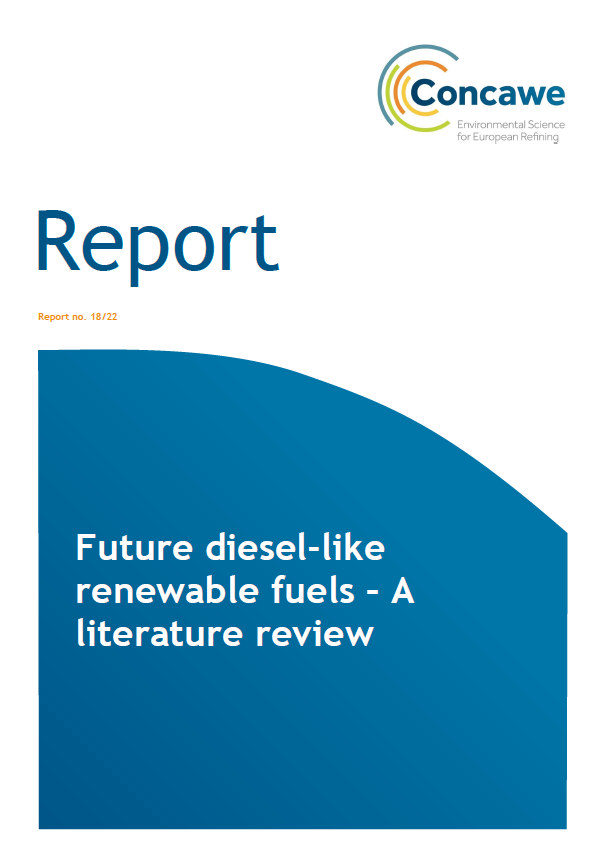
December 6, 2022
Future diesel-like renewable fuels – A literature review
Report no. 18/22: IFP Energies Nouvelles was commissioned by Concawe to identify novel sustainable liquid fuels pathways by 2030 for heavy duty trucks applications. The study consists of an extensive...
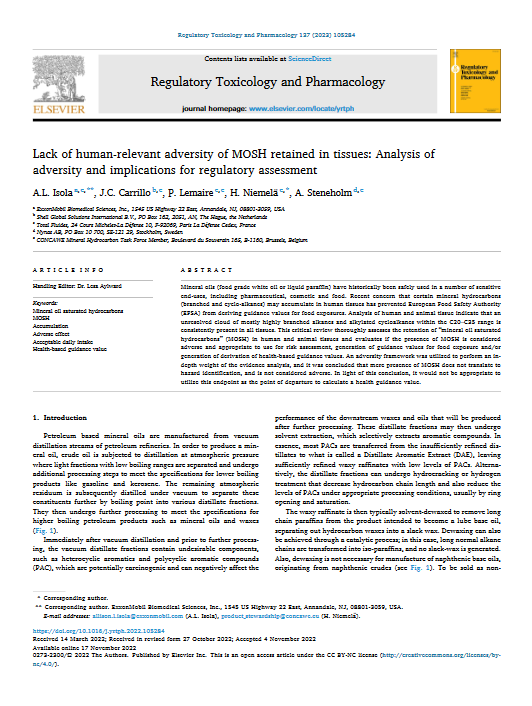
December 1, 2022
Lack of human-relevant adversity of MOSH retained in tissues: Analysis of adversity and implications for regulatory assessment
Mineral oils (food grade white oil or liquid paraffin) have historically been safely used in a number of sensitive end-uses, including pharmaceutical, cosmetic and food. Recent concern that certain mi...
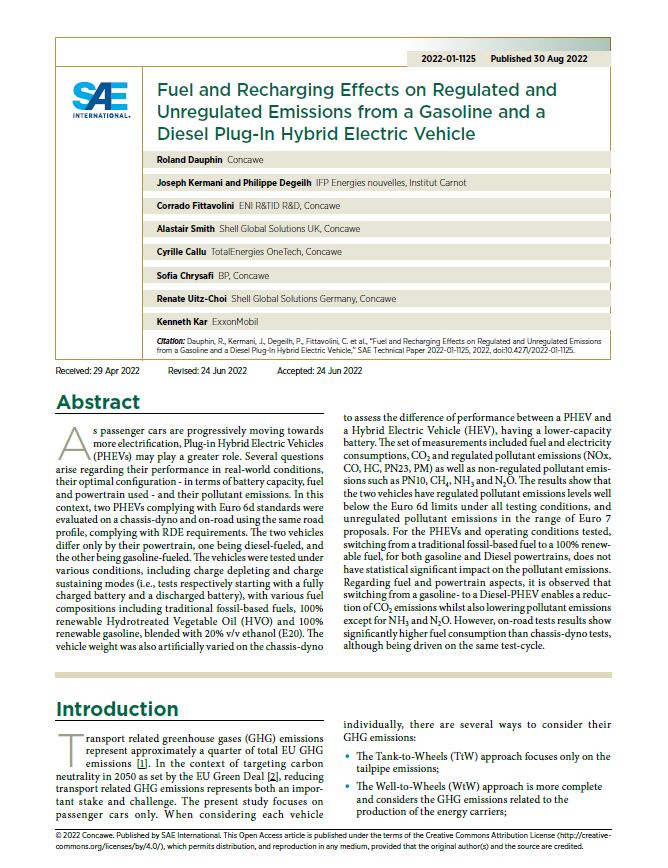
November 24, 2022
Fuel and Recharging Effects on Regulated and Unregulated Emissions from a Gasoline and a Diesel Plug-In Hybrid Electric Vehicle
As passenger cars are progressively moving towards more electrification, Plug-in Hybrid Electric Vehicles (PHEVs) may play a greater role. Several questions arise regarding their performance in real-w...
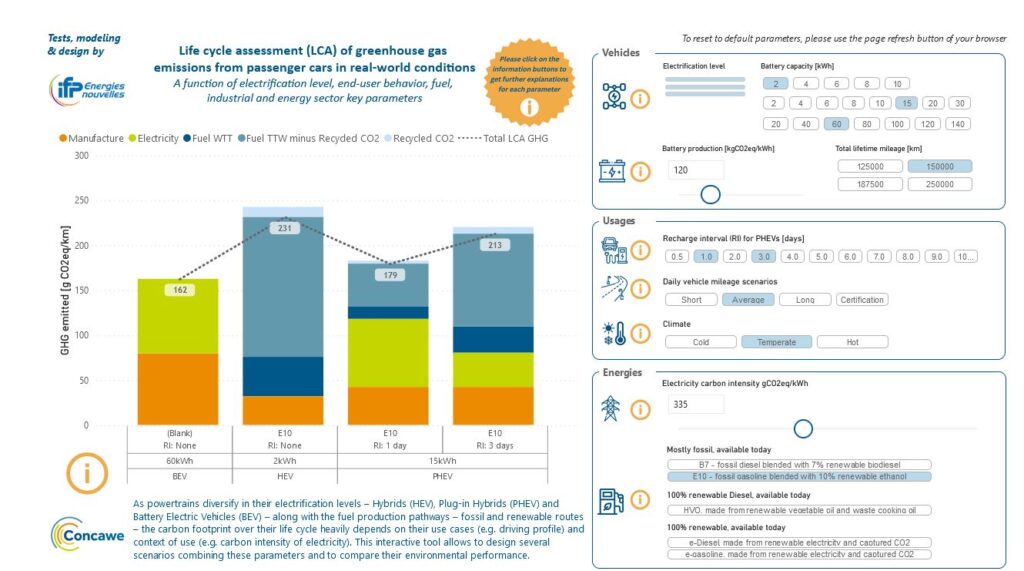
November 17, 2022
Interactive tool: Cars CO2 Comparator
From a climate perspective, it does not matter whether the greenhouse gases are emitted during the production of the car or of the energy carrier, or at the tailpipe. From that perspective, only life-...
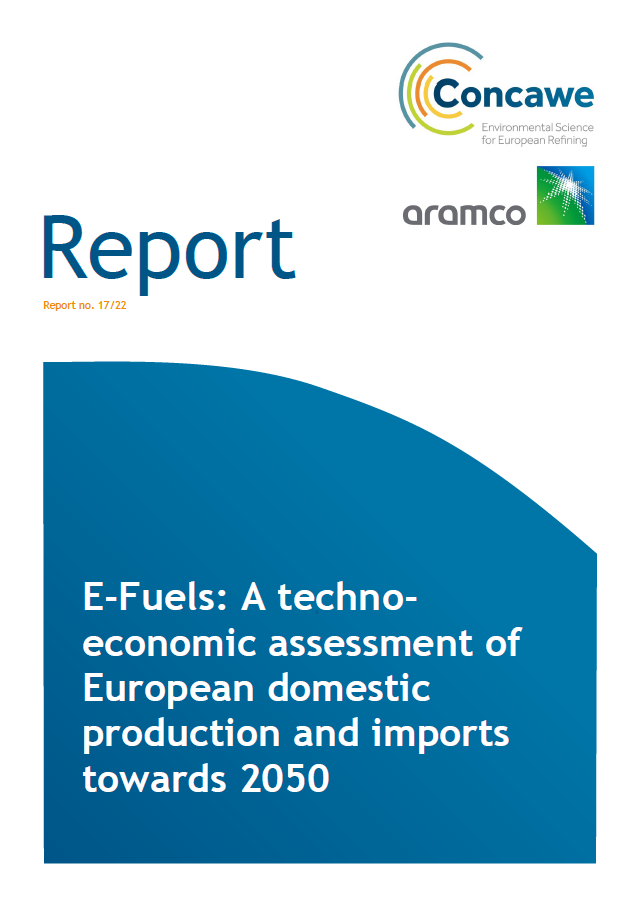
November 7, 2022
E-Fuels: A techno-economic assessment of European domestic production and imports towards 2050 (Concawe Report 17/22)
Report no. 17/22: Concawe and Aramco have jointly commissioned this study, aiming to conduct a techno-environmental (Part 1) and economic (Part 2) analysis of different e-fuels pathways produced in di...

November 4, 2022
Petroleum refinery effluent contribution to chemical mixture toxic pressure in the environment
Petroleum refinery effluents (PRE) are wastewaters from industries associated with oil refining. Within Europe, PREs are regulated through local discharge permits and receive substantial treatment bef...
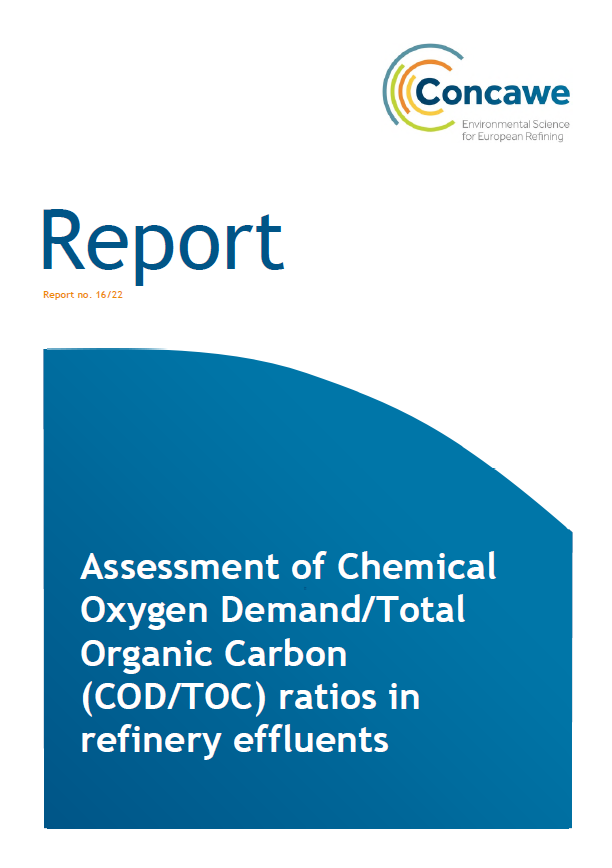
September 15, 2022
Assessment of Chemical Oxygen Demand/Total Organic Carbon (COD/TOC) ratios in refinery effluents
Report no. 16/22: Chemical Oxygen Demand (COD) analysis is one of the most commonly used analytical methods to indirectly measure organic pollutants in effluent waters. The standard COD methods use po...
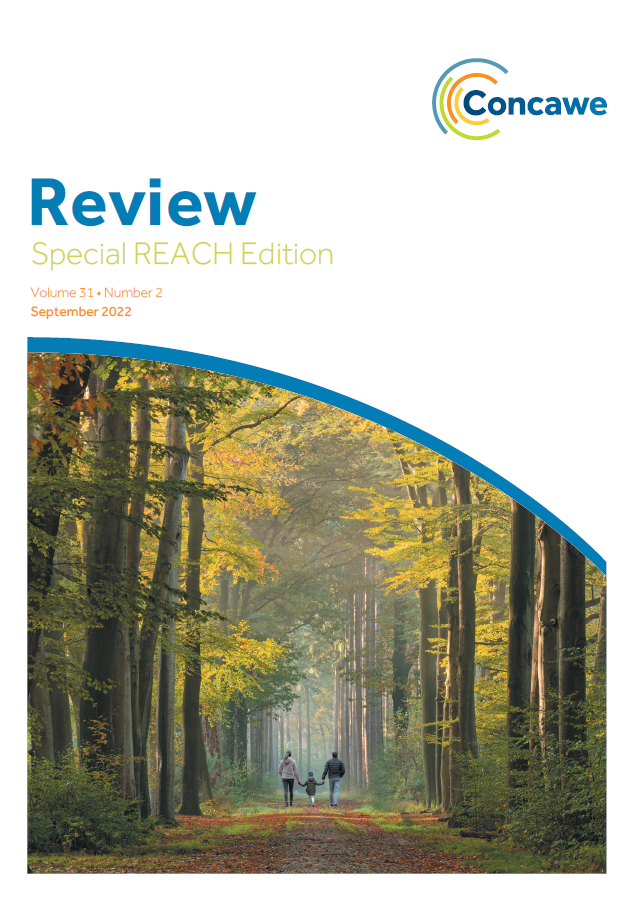
September 6, 2022
Concawe Review Special REACH
Following the REACH registration phase, ECHA began the substances evaluation phase in 2012. The proof of similarity and subsequent justification of read-across between Concawe’s substances, which is...
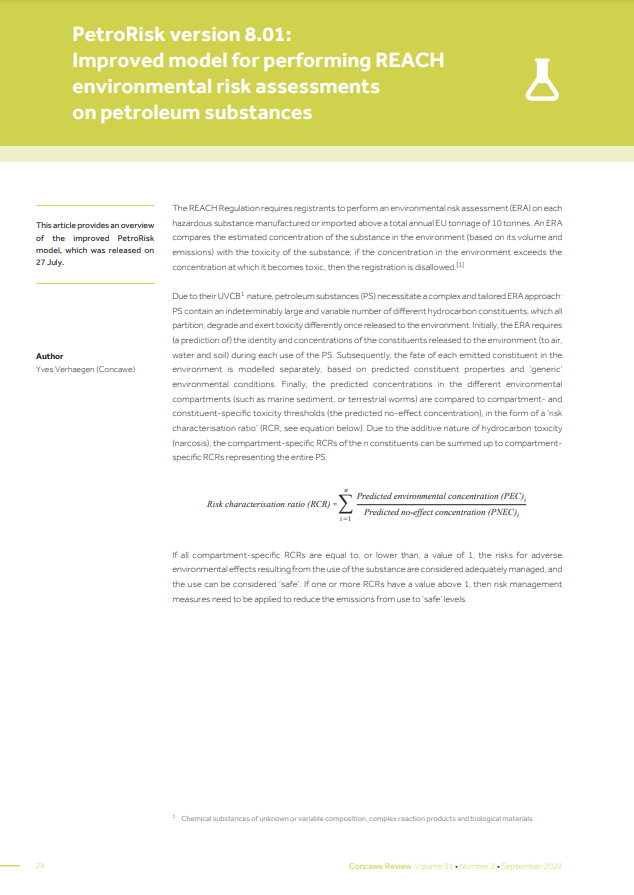
September 6, 2022
PetroRisk version 8.01: Improved model for performing REACH Environmental Risk Assessments on petroleum substances
Concawe has updated the PetroRisk model used to calculate the environmental risk assessments (ERAs) for petroleum substances needed for REACH registration dossiers. The updates result in a model which...
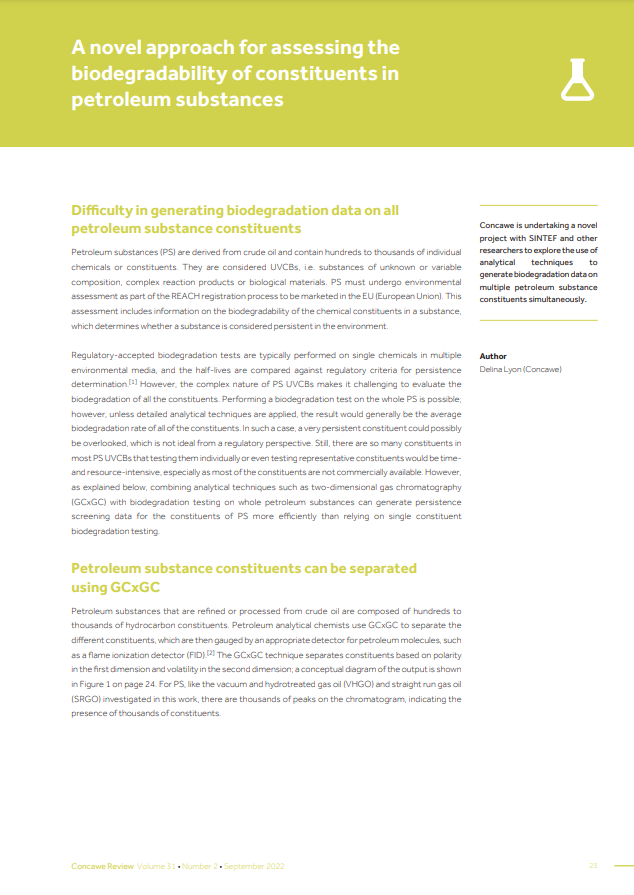
September 6, 2022
A novel approach for assessing the biodegradability of constituents in petroleum substances
Petroleum substances contain hundreds to thousands of constituents, making it very difficult to generate biodegradation data on all of those constituents individually.
Concawe is undertaking a nove...
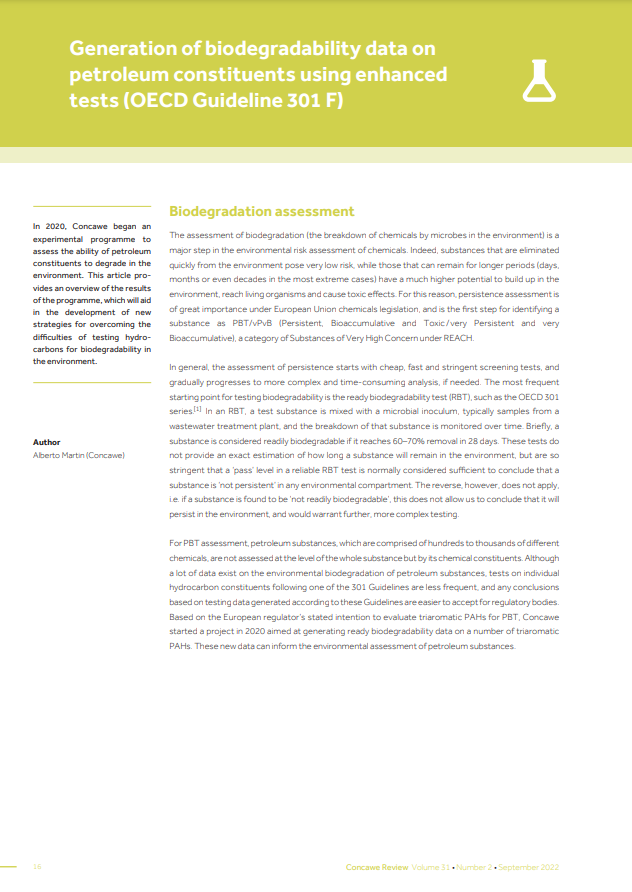
September 6, 2022
Generation of biodegradability data on petroleum constituents using enhanced tests (OECD guideline 301 F)
To improve the persistence assessment of petroleum substances, Concawe started a testing programme for several hydrocarbons. Ready biodegradability tests were proposed on six 3-ring polycyclic aromati...
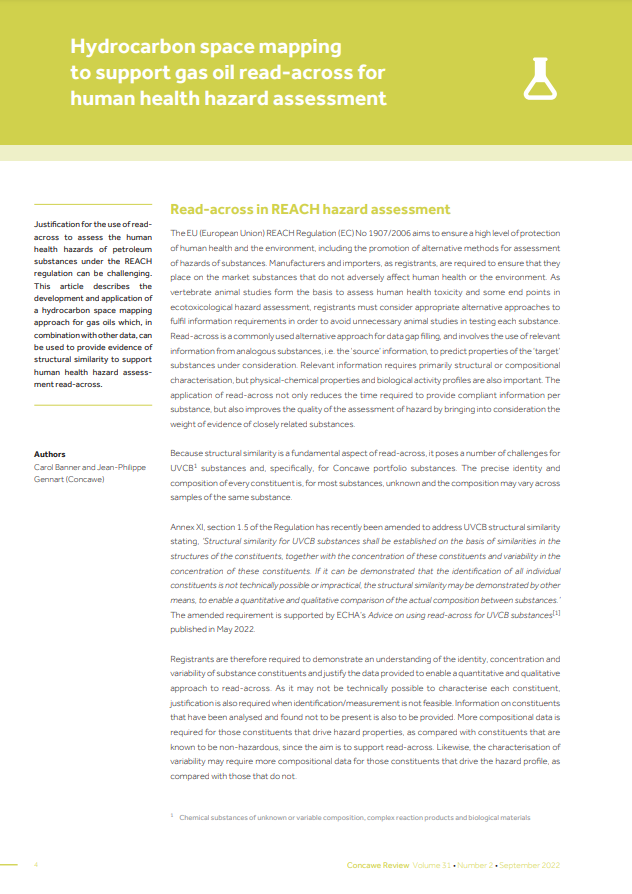
September 6, 2022
Hydrocarbon space mapping to support gas oil read-across for human health hazard assessment
As vertebrate animal studies form the basis for assessing certain human health and ecotoxicity hazards under the EU (European Union) REACH regulation, appropriate alternative approaches to fulfil info...
Subscribe to publications
You can subscribe here to receive notifications about new Concawe publications (Technical Reports and the Concawe Review)